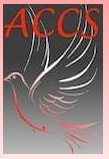The movement of people and ideas, as well as economic, cultural and educational exchange, adds to the richness and complexity of this relationship. Chinese has been taught in Australian schools since the 1950s, and experienced rapid growth in the 1980s as China undertook a policy of open-door.

The history of the Chinese community in Australia extends back to the mid-1800s, and patterns of migration in recent decades have seen rapid growth in Australia’s Chinese population.
Current links between Australia and China are characterised by bilateral relationships in trade and investment, as well as educational exchanges, and research and development in science and technology.
The movement of people and ideas, as well as economic, cultural and educational exchange, adds to the richness and complexity of this relationship. Chinese has been taught in Australian schools since the 1950s, and experienced rapid growth in the 1980s as China undertook a policy of open-door and economic reform.
Chinese is recognised as an important language for young Australians to learn as Australia progresses towards a future of increased trade and engagement with Asia. Chinese taught at the School of Languages refers to Modern Standard Chinese, Pinyin Romanisation and simplified characters.
Given the ongoing use of both forms of Chinese characters (simplified and full form) in the media, in education and in environmental print (advertisements and shop signs), some knowledge or awareness of both systems is an advantage, for Chinese speakers and Chinese learners alike.
Who We Are
The School of Languages is a government school which specialises in languages education. Since its establishment in 1986, this unique South Australian school has supported thousands of students to pursue their interest in languages learning and to experience the joy of embracing another culture.
The school was initially founded as a secondary school for students from all three sectors. In 2000 the school introduced its first classes for students from Reception to Year 7. Since then our primary classes have continued to grow in popularity and demand.
Our Mission
The School of Languages aims to enhance access, choice and continuity in language learning for South Australian learners, through the provision of quality programs in a broad range of languages R-12, that complement and supplement languages programs offered in mainstream schools and ethnic schools.
Our Values
Our Unique Context
Students from Government, Catholic and Independent schools come together after school hours to learn the language of their choice, which is not available in their home school. Lessons are held once a week in a friendly environment of committed professionals and motivated students. This provides for a sustained focus and time for extending students’ learning through a wide range of activities.
Teaching Centres
Our classes are held in schools across Adelaide, with Adelaide High School being the largest centre. Approximately 25 other teaching centres offer a variety of languages at various year levels, in response to local demand.
We give special acknowledgement and appreciation to the many schools across Adelaide that host our programs, thus enabling students and their families to benefit from learning a language.
Choosing To Learn A Language
Studying another language offers many rewards, including:
being able to communicate, interact and negotiate within and across languages and cultures
understanding one’s own and others’ languages, thus improving literacy skills, including in English
understanding selves and others, and the diverse ways of knowing, being and doing
further developing cognitive skills through thinking critically and analytically, solving problems, and making connections in learning
becoming more competitive in the global market.
Languages Taught
A wide range of languages is available through the school, both at primary and secondary levels.

Our focus at MFL is to establish Mandarin as a life long language skill for your child throughout their primary and high school years.

In this course participants will be taught how to read and write the commonly used Chinese radicals which still form the basis of modern Chinese writing. By mastering these radicals

Basic Mandarin course I is designed for students who have no or very limited prior knowledge of Chinese. You may not know basic Chinese words, and find it difficult to answer simple questions in Chinese.

AMEA’s I.S.B.L™ program (Immersive Situational-Based Learning) which was created in 2008, it was inspired by project learning. It is combined immersive language teaching method and problem solving based learning.

We offer a comprehensive range of language courses and cultural training programs for people of English-speaking and other backgrounds.
© 2025 coursetakers.com All Rights Reserved. Terms and Conditions of use | Privacy Policy